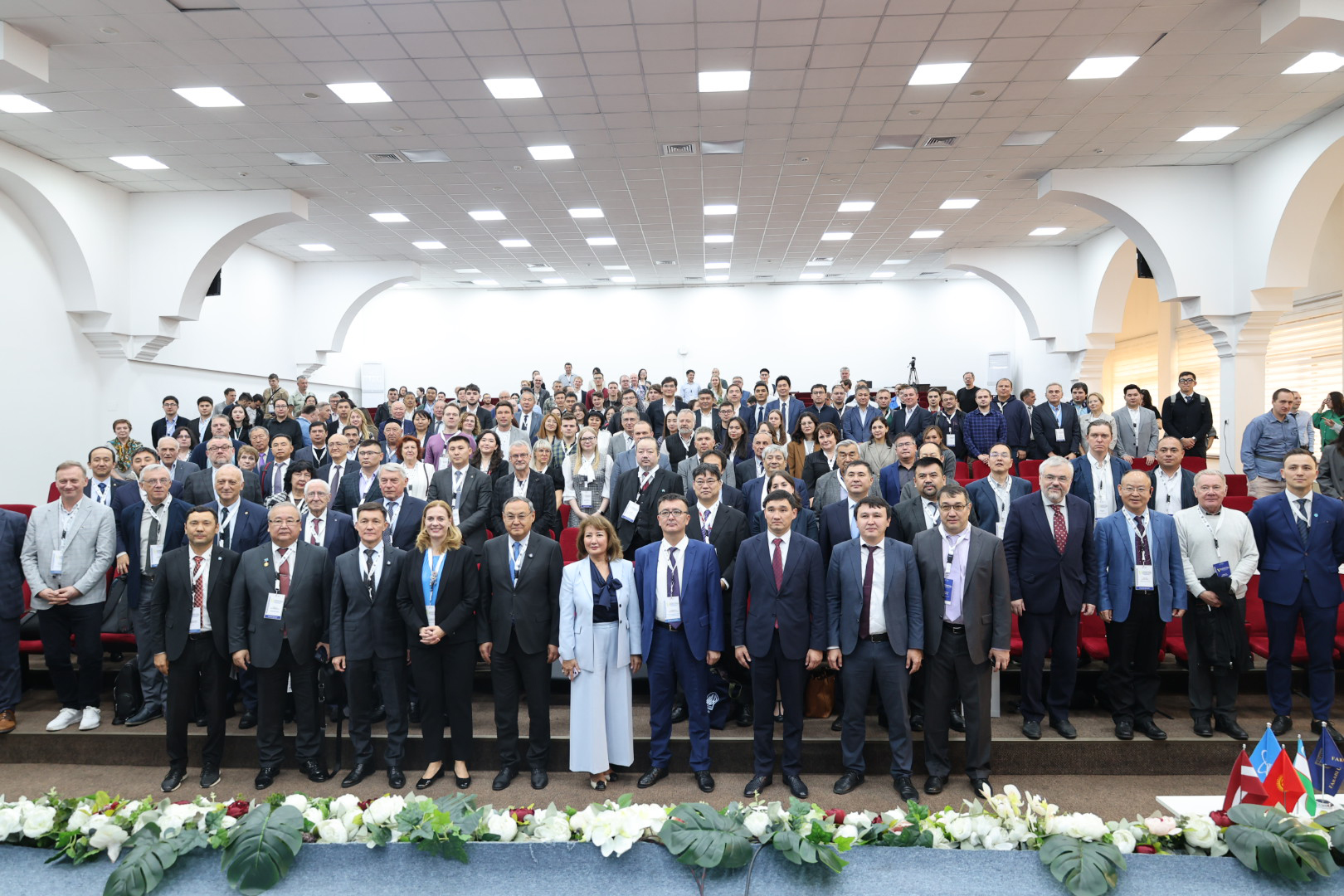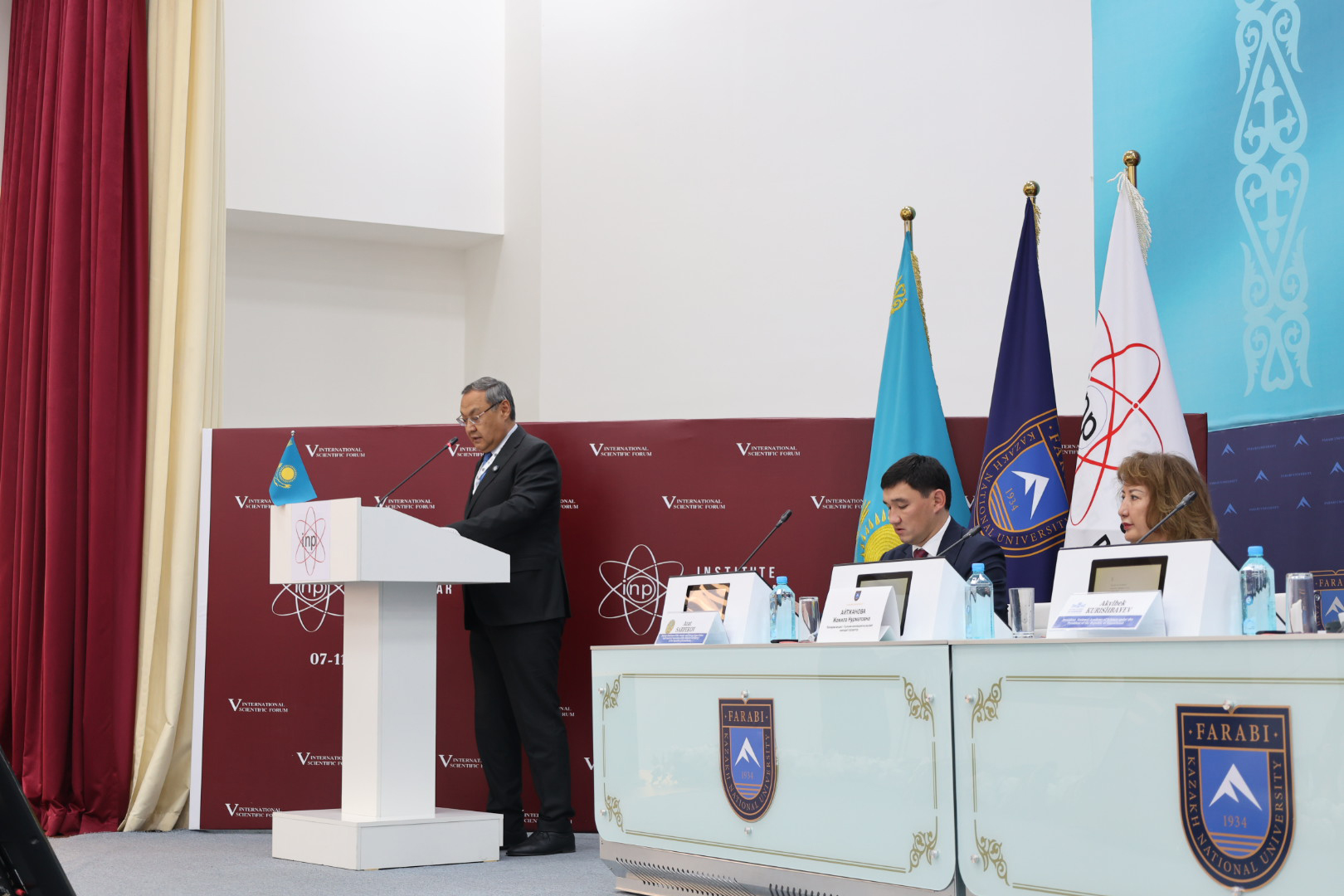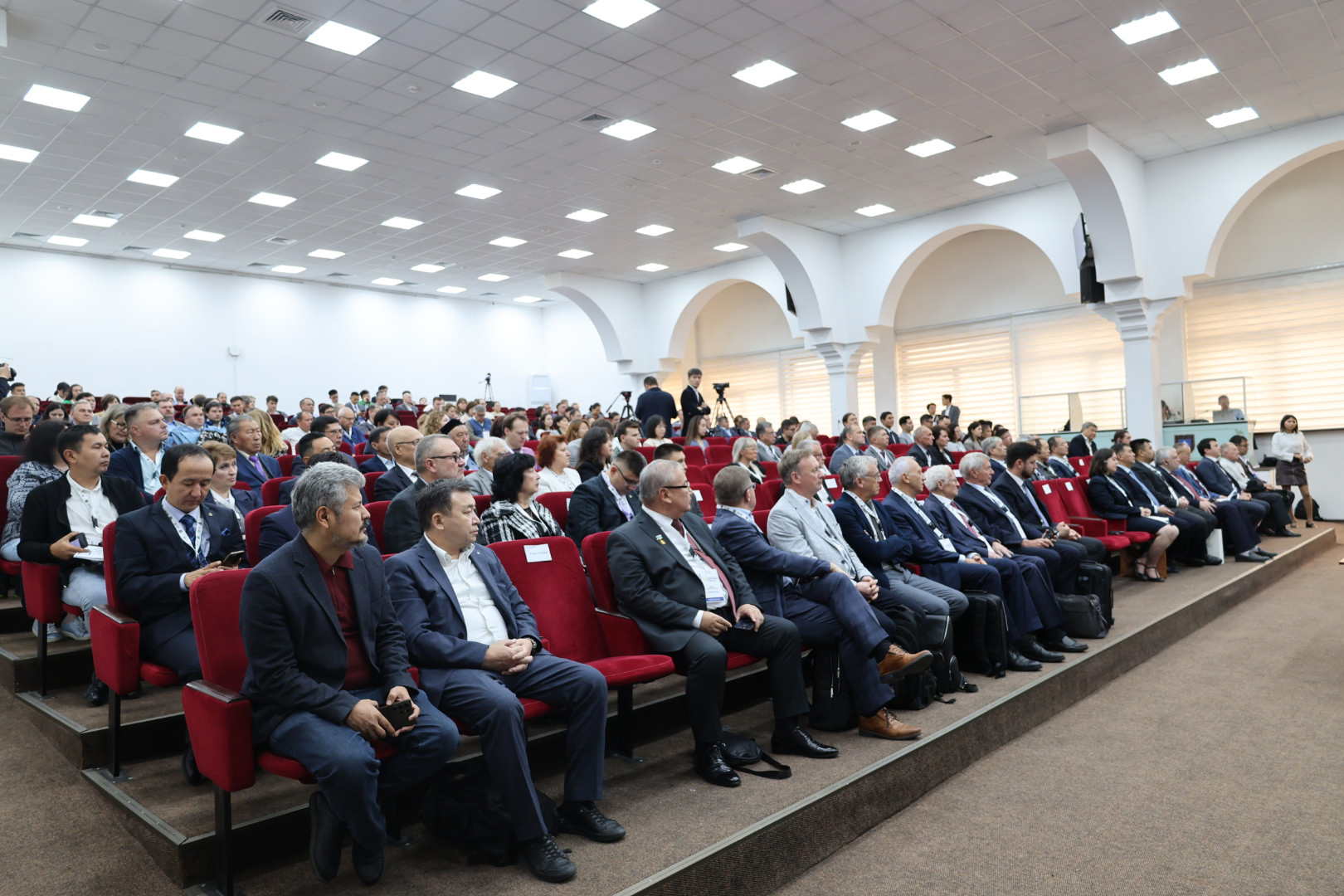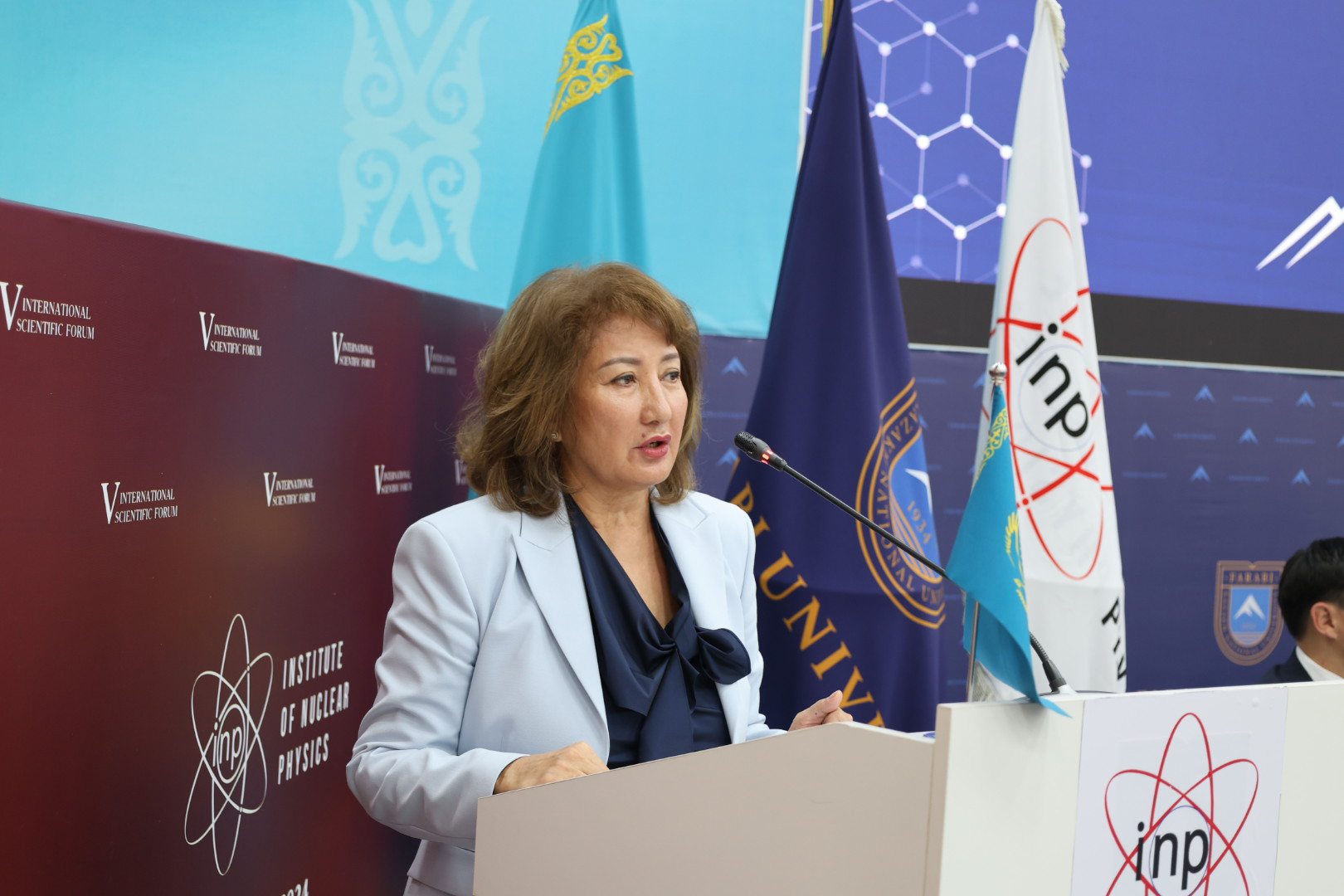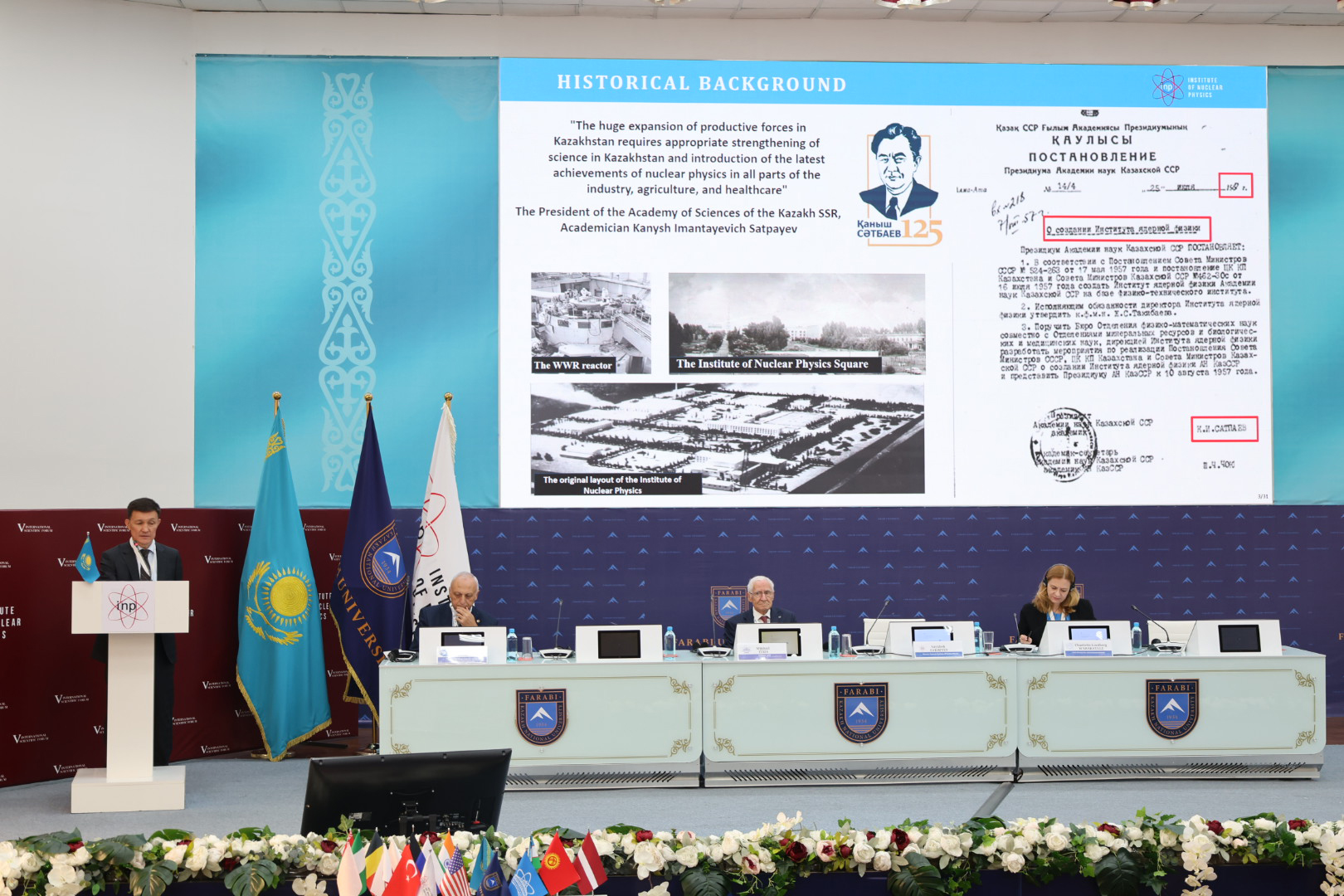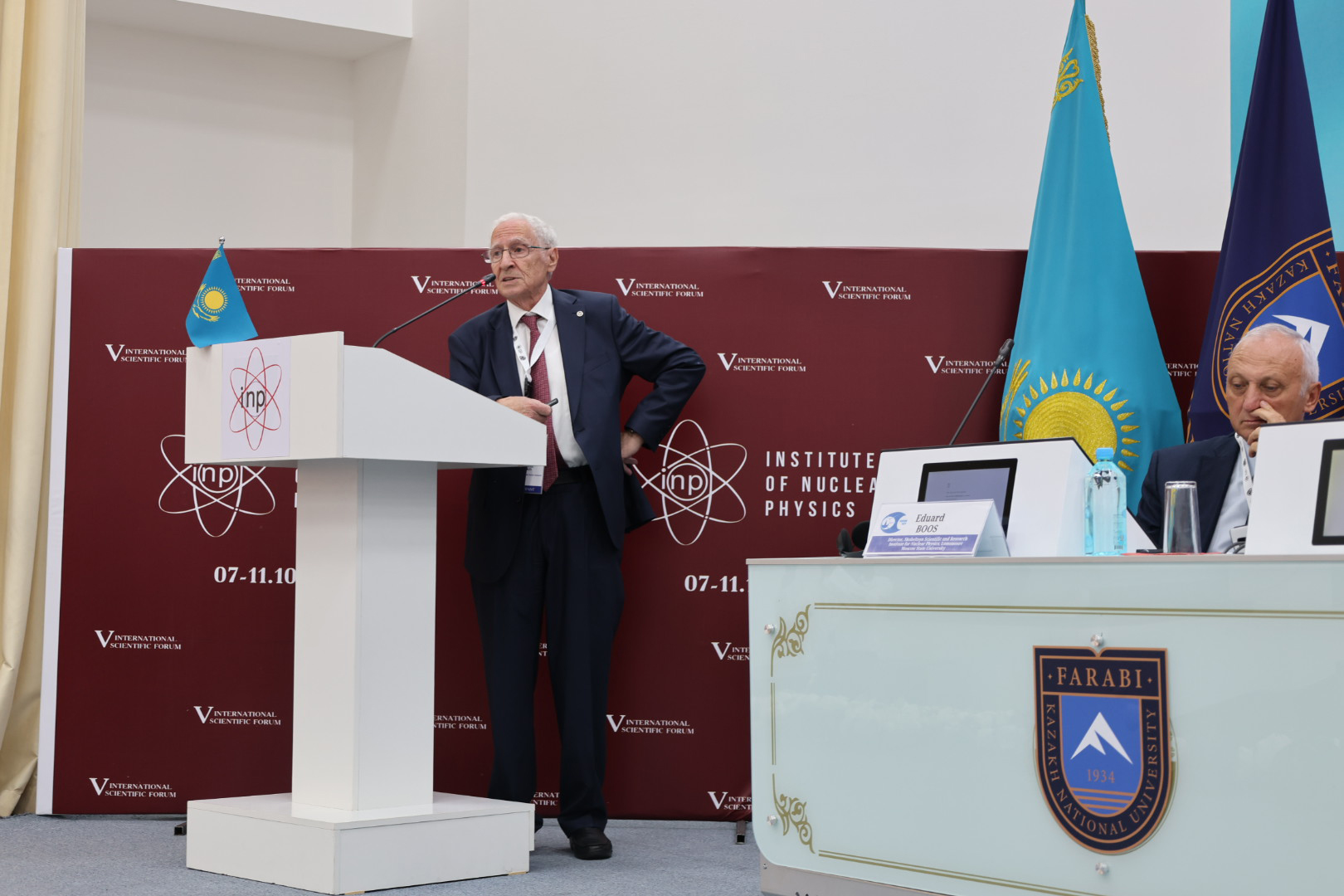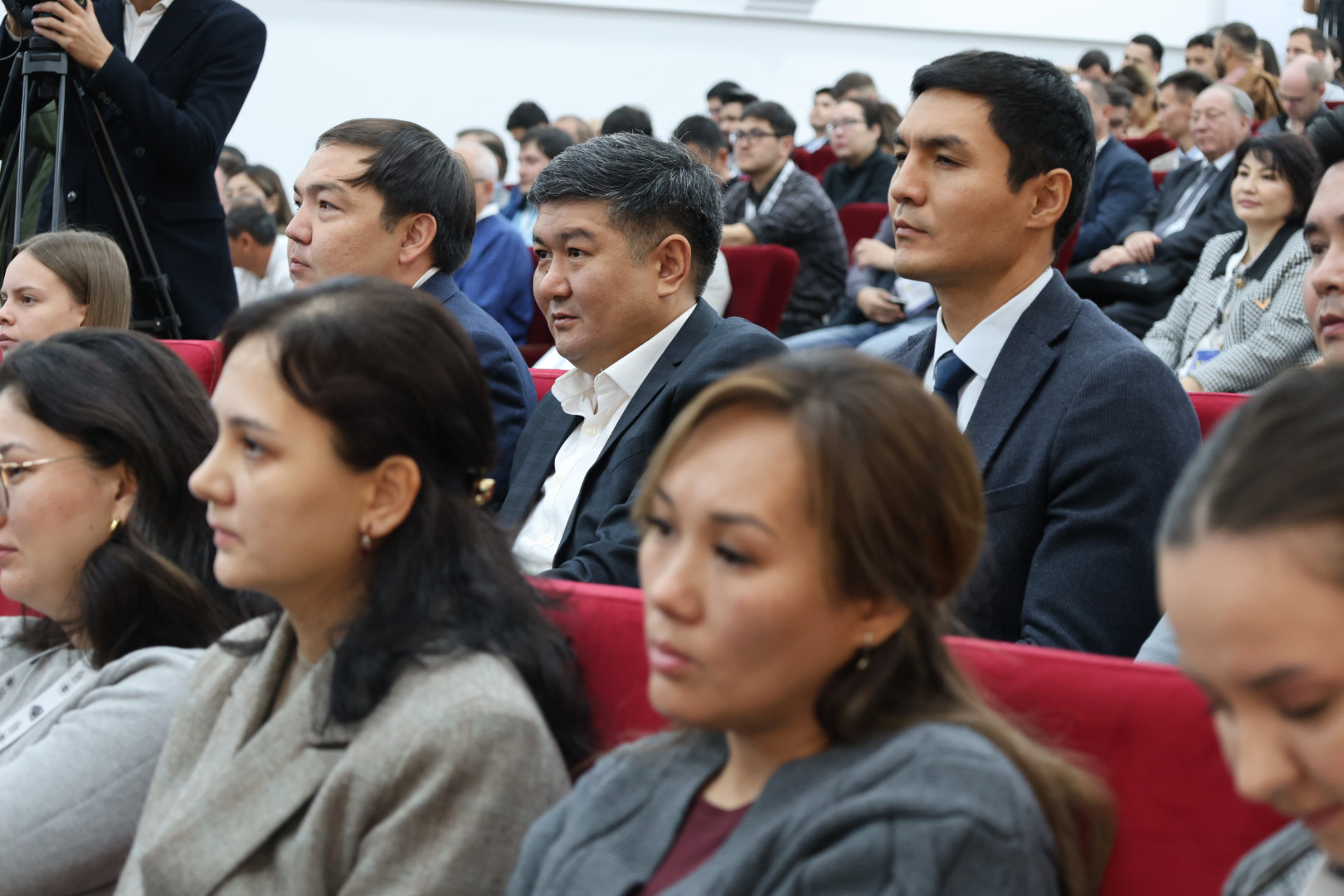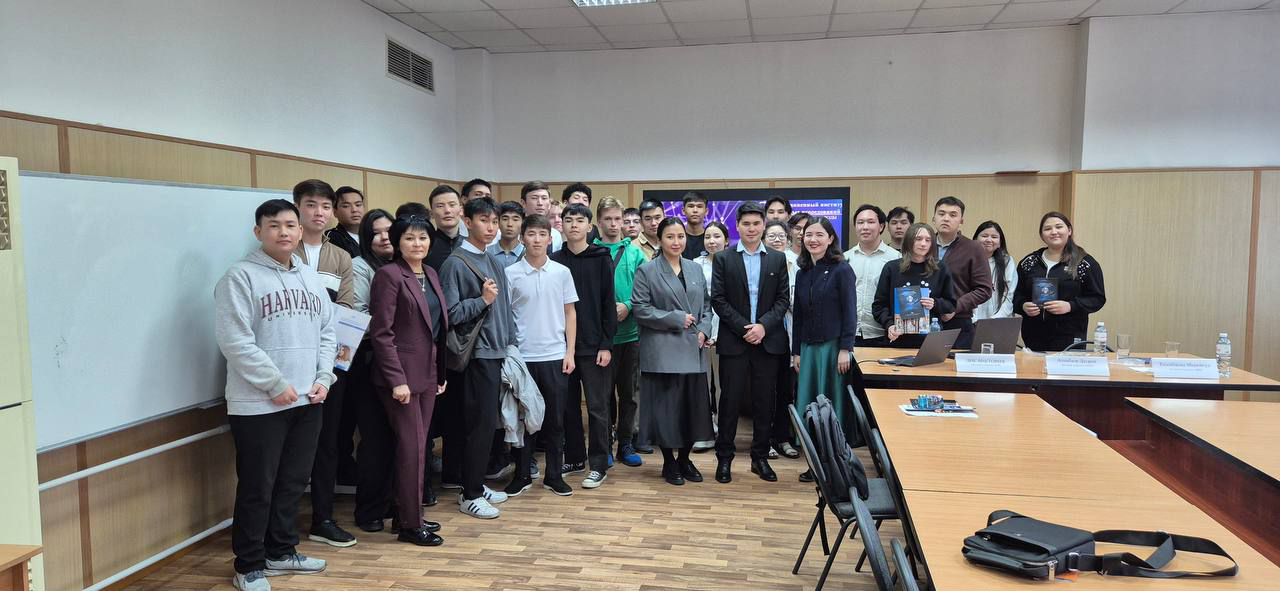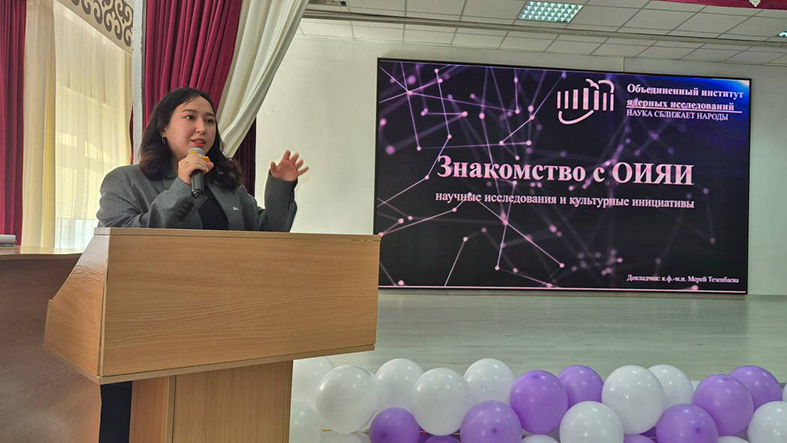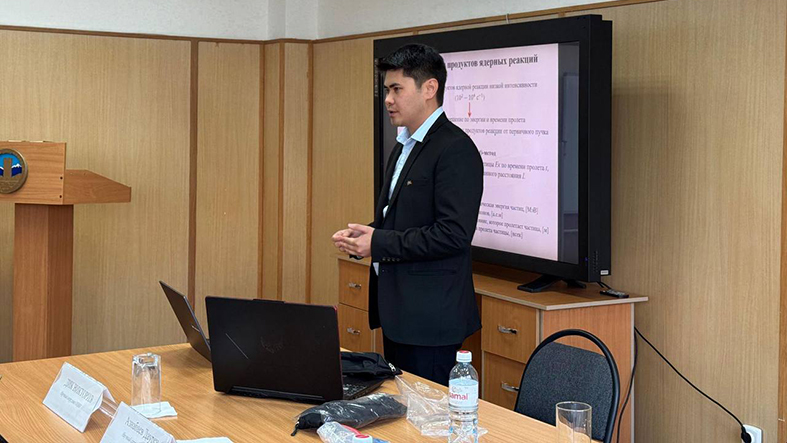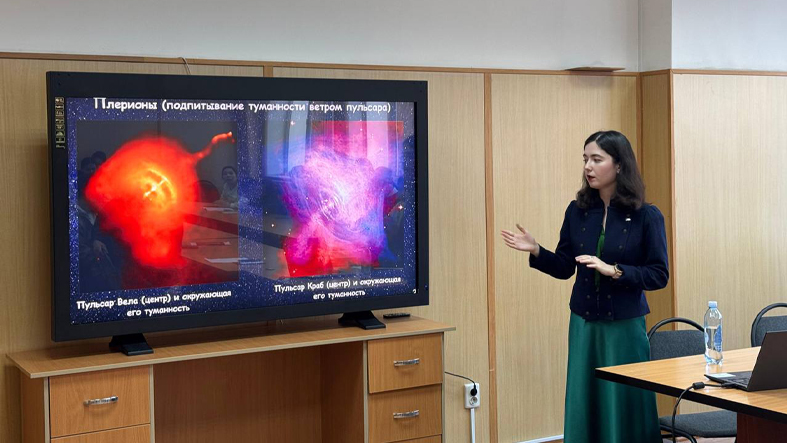JINR at Nuclear Science and Technology International Forum in Republic of Kazakhstan
News, 11 October 2024
On 11 October, the 5th International Scientific Forum entitled “Nuclear Science and Technology”, organized with the participation of the Ministry of Energy, the Ministry of Science and Higher Education, and research and educational institutions of the Republic of Kazakhstan (RK) and supported by the European Organization for Nuclear Research (CERN), finished at Al-Farabi Kazakh National University (KazNU). During the five days, employees of the Joint Institute for Nuclear Research actively participated in the forum.
At the opening of the event on 7 October, President of the National Academy of Sciences under the RK President Akhylbek Kurishbayev acknowledged the progress in cooperation between Republic’s scientific community and world’s leading research centres, including the Joint Institute. KazNU Vice-Rector for Scientific and Innovative Activities Zhamilya Aitzhanova noted the university’s special role in the development of nuclear physics in Kazakhstan: “The National University has been training personnel in nuclear physics for more than 60 years. The graduates are more than 600 nuclear specialists working not only in Kazakhstan, but also in leading scientific and educational centres around the world: CERN, JINR, KIT, RIKEN, and the universities of France, Germany, Japan, Russia, and the USA. KazNU actively participates in international nuclear physics initiatives and projects.”
The first day’s plenary session started with a report by the Director General of the Institute of Nuclear Physics (INP) of the Ministry of Energy of the Republic of Kazakhstan Sayabek Sakhiyev on the INP scientific activities. One of the largest research centres of the Republic promotes cooperation development between Kazakhstan researchers and the world research community. “Currently, 77 representatives of the Republic of Kazakhstan are involved in scientific activities at the Joint Institute for Nuclear Research. It is very important for us that Kazakhstan researchers take an active part in almost all JINR flagship projects,” Sayabek Sakhiyev said.
FLNR JINR Deputy Scientific Leader Mikhail Itkis discussed the history of research in synthesis of superheavy elements. “There are still many unanswered questions concerning the radiochemical properties of superheavy elements,” the Advisor to the Director of the Joint Institute said. – In order to develop this research area, in 2019, the world’s most powerful accelerator complex in low-energy heavy ion physics was put into operation at the JINR Laboratory of Nuclear Reactions. The JINR Superheavy Element Factory makes it possible not only to synthesise new nuclei with a cross section of less than 100 femtobarns, but also to study spectroscopy and chemical properties of superheavy nuclei.”
The forum served as an important platform for discussing scientific achievements in the following areas:
- nuclear physics,
- nuclear power and solid state radiation physics,
- radiation ecology and analysis methods,
- nuclear and radiation technologies in medicine,
- radiation technologies in industry and agriculture.
Two international conferences took place as part of the forum: Nuclear and Radiation Physics and Nuclear and Radiation Technologies in Medicine, Industry, and Agriculture. In addition, CERN representatives held an international scientific school for junior, senior, graduate, and doctoral students featuring interesting lectures by world-class researchers and experts in high energy-, nuclear-, accelerator physics, and nuclear medicine.
“The cooperation between JINR and scientific and educational organizations of the Republic of Kazakhstan is highly effective. – Head of the INP Laboratory of Nuclear Processes Timur Zholdybayev stressed during his speech at the final session of the forum. — And the Joint Institute for Nuclear Research certainly plays a significant role in training Kazakhstan young specialists and helping them grow as researchers.”
At the closing ceremony, Mikhail Itkis highlighted the high level of organization of the international forum and thanked all those involved in holding the event. He noted that the first issue of the new JINR scientific journal, Natural Science Review, is scheduled for March 2025. Articles can be submitted until the end of 2024.
According to the organizers, 340 people took part in the forum, including 135 scientists from 15 countries. During the week, the Joint Institute employees delivered more than 50 reports. Among them, representatives of the National Group of the Republic of Kazakhstan (NGRK) at JINR were the most active. Their reports covered topical areas of fundamental and applied nuclear physics, nuclear energy, radiation ecology, and the application of radiation technologies in medicine and industry.
On 3–4 October, ahead of the International Forum, JINR NGRK employees held popular science lectures for students of secondary school No. 64 in Almaty and KazNU. Mereigul Tezekbayeva (FLNR), Dauren Aznabayev (FLNR), and Viktoriya Dik (DLNP) told the audience about the JINR modern research. In addition, schoolchildren and students learned about opportunities to participate in the JINR international schools, internships, scientific conferences, and tours of the Institute’s largest research facilities.
